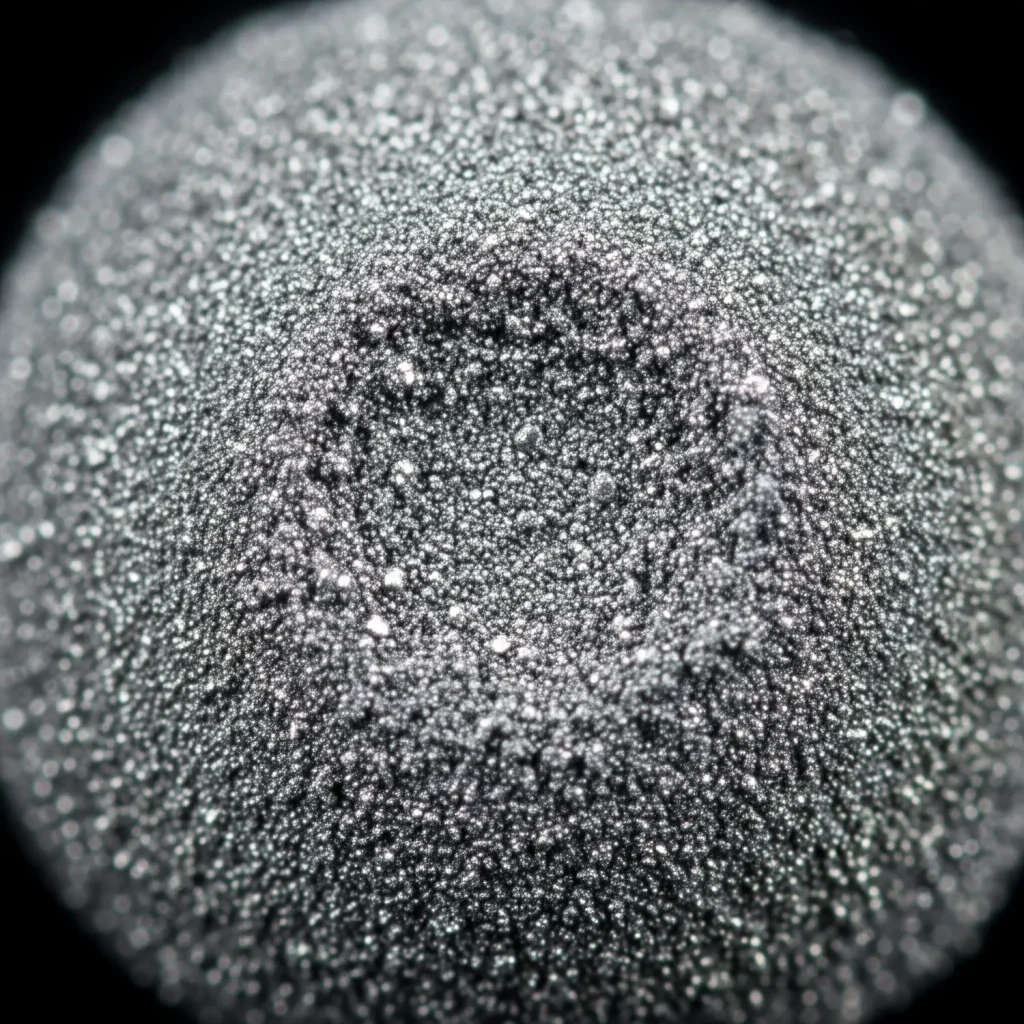Zinc Dust (Zn) is far more than just a raw industrial material; this vital product serves as a fundamental pillar for countless advanced and innovative processes across diverse industries. Comprised of extremely fine and highly reactive zinc particles, Zinc Dust boasts exceptional properties including high reactivity, unparalleled corrosion resistance, and excellent electrical and thermal conductivity, making it an indispensable component in a vast array of applications.
From cold galvanizing coatings and zinc-rich primers that offer superior protection against corrosion, to its role as a catalyst in chemical production, from pigments in the paint industry to its use in powder metallurgy and battery manufacturing, Zinc Dust holds a key presence at the heart of today’s industries. ATSOTEK, with profound expertise in this field, supplies Zinc Dust adhering to the highest standards of quality and purity, precisely tailored to meet the complex demands of various industrial sectors.
In the following sections, we will delve deeper into the comprehensive features, benefits, and diverse applications of Zinc, demonstrating how choosing this product from ATSOTEK can significantly enhance quality, boost durability, and optimize your production processes.
Extensive Applications of ZINC DUST Across Various Industries
Zinc Dust (Zn), thanks to its unique chemical and physical properties, serves as a crucial raw material across a vast spectrum of industries and applications. Recognized for its high reactivity and exceptional ability to provide superior corrosion protection, this material plays a vital role in processes ranging from the production of paints and protective coatings to chemical and metallurgical industries. Below, we highlight some of the most significant applications of Zinc Dust:
- Paints and Protective Coatings Industry:
- Zinc-Rich Primers: One of the most critical applications of zinc dust is in the production of anti-corrosion primers. These primers provide robust cathodic protection to metallic surfaces (such as steel), safeguarding them intensely against rust and corrosion. This application is particularly vital in marine, construction, and automotive industries.
- Cold Galvanizing Paints: Zinc dust is employed in paints that emulate the performance of hot-dip galvanization. These are used for repairing damaged galvanized areas or coating structures where hot-dip galvanization isn’t feasible.
- Metallurgy:
- Reducing Agent: In metallurgical processes, zinc dust acts as a powerful reducing agent for the production of other metals like copper, cadmium, and gold from their aqueous solutions.
- Alloy Production: In certain alloying processes, zinc dust is used as an additive to enhance mechanical properties and corrosion resistance.
- Chemical Industry:
- Reducing Agent: In both organic and inorganic syntheses, zinc dust is utilized as a reducing agent to facilitate various chemical reactions. A prime example is its role in the production of sodium hydrosulfite.
- Catalyst: In some catalytic processes, zinc dust functions as a component within the catalytic system.
- Battery Manufacturing:
- In specific types of batteries, particularly zinc-carbon and zinc-air batteries, zinc dust serves as the active anode material.
- Manufacturing of Friction Materials and Brake Pads:
- Due to its thermal and frictional properties, zinc dust is used in the production of brake pads and other friction materials.
- Other Applications:
- Pharmaceutical and Agricultural Industries: Employed in certain specific processes as an additive or reactive agent.
- Water and Wastewater Treatment: Used in some treatment systems for the removal of specific pollutants.
As you can see, the range of Zinc Dust’s applications is incredibly broad and diverse, and its role in the advancement of many modern industries is undeniable. Opting for high-quality, high-purity Zinc, which ATSOTEK guarantees, is essential to achieve maximum efficiency and durability across all these applications.

Strategic Importance and Factors Influencing the Price of ZINC DUST
Zinc Dust (Zn) is more than just a chemical product; it’s a strategic material whose presence in various industries significantly impacts the quality, durability, and efficiency of final products. Its importance stems not only from its widespread applications in corrosion prevention, battery production, and chemical processes, but also from its crucial role in the sustainability and longevity of industrial infrastructure and goods. Opting for Zinc of standard purity and quality directly affects your product’s final performance, and any oversight in this area can lead to significant costs from repairs or replacements.
Why is Zinc Dust (Zn Dust) So Vital?
- Unparalleled Corrosion Protection: The most significant reason for Zinc Dust’s importance is its unmatched ability to protect metals from corrosion. This feature dramatically extends the lifespan of structures and equipment, especially in corrosive environments like the marine, construction, and automotive industries.
- Powerful Reducing Agent: Zinc Dust’s role as a reducing agent in the chemical and metallurgical industries makes it an essential component for producing numerous chemicals and pure metals.
- Extended Product Lifespan: By using Zinc in coatings and alloys, products can gain increased resistance to environmental factors, thereby reducing costs associated with wear and replacement.
- Supporting Modern Technologies: From advanced batteries to novel metallurgical processes, Zinc serves as a vital raw material, supporting the development and advancement of cutting-edge technologies worldwide.
Factors Influencing the Price of Zinc Dust
The price of Zinc Dust, like many industrial raw materials, is influenced by several factors. Understanding these is crucial for purchasing decisions and strategic planning. ATSOTEK, by continuously monitoring the market and leveraging extensive trade relationships, strives to offer its customers the best prices and quality. The most significant factors affecting the price of Zinc include:
- Global Zinc Metal Prices: Zinc Dust is directly produced from zinc metal; therefore, fluctuations in global zinc prices (such as on the London Metal Exchange – LME) directly impact the price of Zinc. Global supply and demand for zinc, the status of mines, and smelting capacities are determining factors.
- Product Purity and Quality: Zinc Dust is manufactured in various grades based on purity and particle size. The higher the purity and the finer and more uniform the particle size, the more complex the production process, and consequently, the higher its price. Special high-purity grades command a premium for more sensitive applications.
- Supply and Demand in the Domestic and Regional Market: The balance of supply and demand within the Iranian and regional markets also affects prices. Domestic production levels, imports, and the volume of consumption by local industries are key factors.
- Production Costs: Costs related to energy, labor, auxiliary raw materials, and manufacturing processes directly impact the final cost of Zinc Dust.
- Exchange Rates and Inflation: Given that some raw materials or necessary equipment are imported, fluctuations in exchange rates and inflationary conditions within the country can influence the final price of Zinc Dust.
- Environmental Regulations: Any changes in environmental standards or production requirements can increase manufacturing costs and affect the final price.
ATSOTEK, as a leading supplier of Zinc Dust, is committed to providing high-quality products at competitive prices. For more detailed information on current pricing and expert consultation on selecting the appropriate grade of Zinc for your project needs, please contact our specialists.



